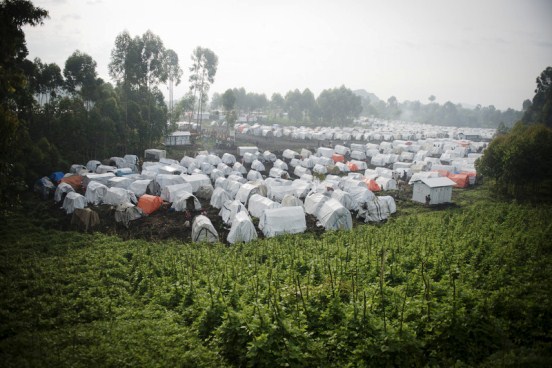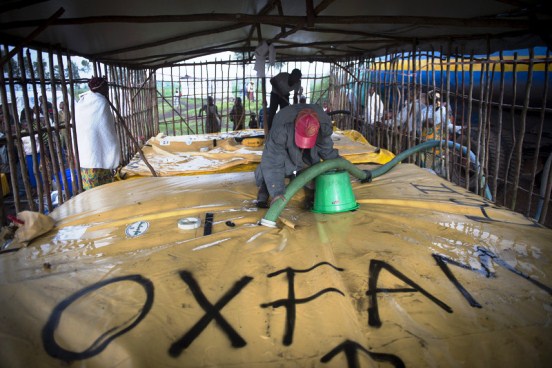Communities in the eastern Democratic Republic of Congo are being preyed on mercilessly by rebel groups and local militias, as well as their own government's troops and officials, in a vicious cycle of exploitation and abuse according to a new report by international agency Oxfam. The report is being published as the region's financial hub, the city of Goma, is the site of on-going fighting between the government forces and the M23 group which has pushed thousands of people out of their homes and into displaced camps.
According to Oxfam, Congolese civilians are not only suffering violent abuse on a massive scale - including rape, kidnap and murder - but are also being subjected to an unprecedented level of financial exploitation, as belligerents loot and extort illegal taxes in their battle for control.
Evidence gathered by Oxfam in a survey of more than 1,300 people in the provinces of North Kivu, South Kivu and Province Orientale shows that government soldiers and civilian authorities, including the local police, and armed rebel groups are vying for control over local communities to extort money and goods from them. In some areas such as northern Masisi and southern Lubero, vulnerable communities have become one of the most important sources of income for armed groups.
 View of the Kanyaruchinya camp, DRC - Colin Delfosse/Oxfam
View of the Kanyaruchinya camp, DRC - Colin Delfosse/Oxfam
The crisis in DRC has deteriorated rapidly since April of this year when former CNDP (Congrès National pour la Défense du Peuple) soldiers defected to form a new group, the M23 (Mouvement 23).
Over the past eight months eastern Congo has seen increased activity among armed groups who consistently rape, kill, kidnap, torture and abuse civilians.
"Ruthless militias and government troops are both mercilessly exploiting local communities to help fund their war," said Oxfam's associate country director, Elodie Martel. "Preying on people has become an extractive industry in which armed groups plunder money, food and whatever other resources they can find. People are leaving their homes everyday to escape the terror of rebel rule and the relentless extortion that makes existence almost impossible as their lives and livelihoods are looted."
The aid agency said exploitation has reached appalling levels with people facing violent forced recruitment, forced labour and continuous illegal taxation. As battles rage back and forth over strategic territory and communities, people are fleeing - many to rapidly growing camps where they are forced to live in terrible conditions with very little help. Since the beginning of the year, 767,000 people in North and South Kivu have left their homes due to conflict.
 Oxfam is one of the main suppliers of water in Kanyaruchina camp. - Colin Delfosse/Oxfam
Oxfam is one of the main suppliers of water in Kanyaruchina camp. - Colin Delfosse/Oxfam
The assessment found that communities face pervasive abuse by both armed rebel groups and government forces but around two thirds of people said that, despite the abuse and the environment of impunity, they felt more secure living under FARDC control.
In the absence of an effective state authority, many people said they feel abandoned by central government and in some areas have taken justice into their own hands by forming their own armed force - adding to the plethora of armed groups in the east.
"In the face of abuse and exploitation on this scale there is no room for apathy. This is a humanitarian catastrophe on a massive scale and the world cannot continue to turn its back on this tragedy. Communities in eastern Congo are living on the very edge of survival with the little they have being taken to fund the war. Not only does the conflict mean that people are under constant threat of violence, but it is taking the clothes off their backs and the harvest from their fields," said Martel.
"It is reprehensible that another year goes by with people telling us they go to bed afraid of killing, lootings and abductions and that women are too afraid to go to their fields for fear of being raped. The Congolese Government, the United Nations, the international community must listen and respond to the people paying the ultimate price for the conflict."
To read the full report, CLICK HERE